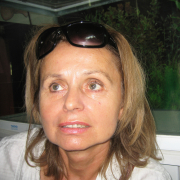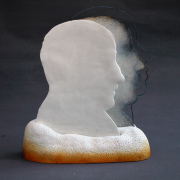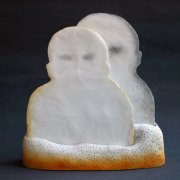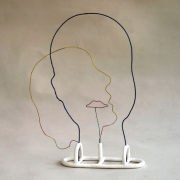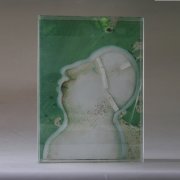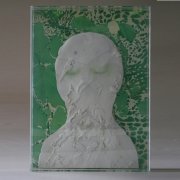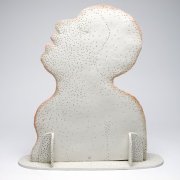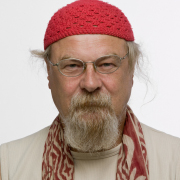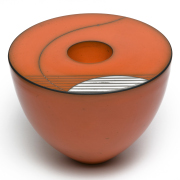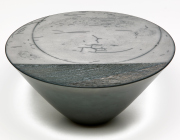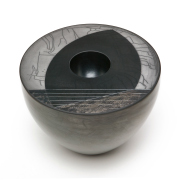Special Exhibition
|
|
|||||||||||||||
|
Profiles & Movements In Space Jindra VIKOVÁ, Czech Republic |
|||||||||||||||
|
|||||||||||||||
|
Examples: Jindra Viková:
Examples: Tjok Dessauvage:
JINDRA VIKOVÁ The Kampa Museum show in Prague consisted of her most recent work – silhouettes, photograms and assemblages; faces and fragments. The assemblages fuse diverse components into a unified whole, confronting them with each other and creating metaphors, new connections and interrelations. Their form is metamorphosed, minimalized, abstracted. Jindra Viková speaks of fragments of past encounters and the need to preserve at least the memory of them, something which disappears irretrievably, lingering but for an instant and then becoming close to non-existent. Humanity remains her central theme. However, the silhouettes no longer show individual features as they did back in the 1980s. They are not types, or painted figures inspired by live models, but are instead symbols, two-dimensional silhouettes most akin to shooting targets; heads with suppressed details, with signs in place of the human. The vulnerability of these low, one-sided reliefs is amplified by their being mounted in plexi-glass boxes, with scraps pasted-on – the fragments of memories. Silhouettes drawn with coloured wire attain a third dimension by being erected spatially. The outlines of several of the heads circumscribe airy volumes, interconnecting and overlapping, creating an illusion of suppleness and movement. With a changing use of angle they too are transformed. A wire head touches another face, two faces merge together, lips pass from one face to another. The first silhouette was created in Oregon in 1992, and carries the appeal of an unexpected revelation. There is a sudden fascination, an enchantment with the new, as well as a degree of uncertainty. It is a pity that one cannot walk around any of those wire sculptures. The irreversibility of time and the intangibility of memory are
rendered with uncommon intensity in the cycle Hands. The assemblages do not have individual titles. They are diverse, and yet as it were interchangeable, like one another. Are our desires, hopes, fears and joys as alike as this? They must be. For if they were not, we would hardly be able to communicate anything of substance. And what would then become of art? It would cease to exist. |
|||||||||||||||
opening hours: Tue - Fri 11 a.m. - 1 p.m. & 2 - 6 p.m. Opening: Sunday; 13 September, 11.30 a.m - 18 p.m. Introduction: Dr. Kristina Hooge, Heidelberg |
|||||||||||||||
|
exhibition site: Galerie Heller Phone: +49 (0) 6221 - 61 90 90 |

